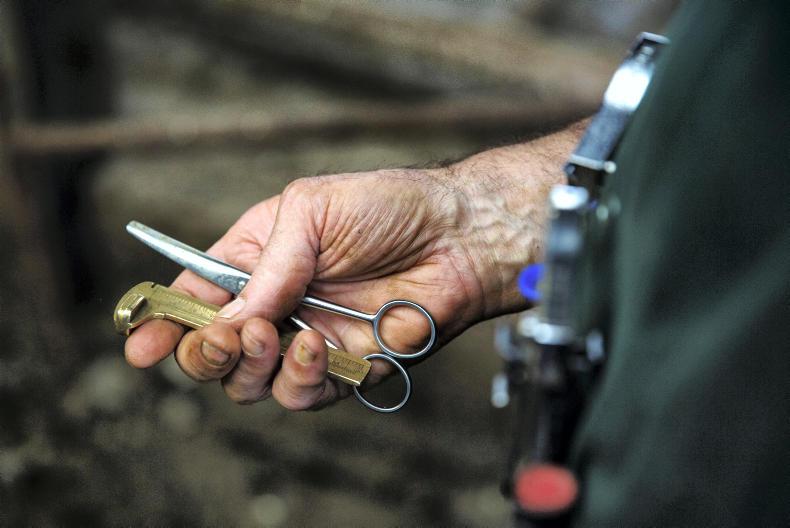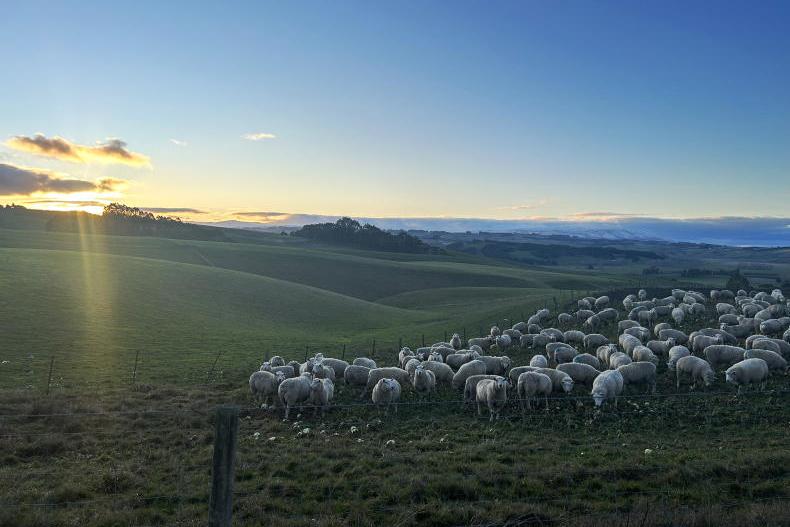A reduction in the rates of bovine TB in NI should mean that the overall costs of the TB programme are down around £4.5m this year.
Confirming the figure at a speech at the annual dinner of the British Veterinary Association (BVA) in NI, DAERA chief vet Dr Robert Huey welcomed the progress made.
Over the last couple of years, the annual cost of the TB programme has come to around £40m, to cover both testing and also reactor compensation. However, reactor numbers are down this year, with the latest figures from DAERA to the end of September putting the total number of cattle removed from farms at 9,132.
That is down significantly from the 11,249 for the same period in 2018, and the 11,535 from 2017. To the end of September 2019 a total of 1,227 new reactor herd breakdowns have been recorded in NI, compared to over 1,500 for the same period in both of the last two years.
Of the 11 divisional veterinary offices in NI, all have seen a reduction in herd incidence in the last 12 months, except for the areas covered by Ballymena and Mallusk.
“I want to talk to industry and members of the TB Eradication Partnership about another package of measures to drive down the rates even further,” Huey confirmed.
ASF
During his presentation he also referred to the importance of keeping other diseases out of NI, particularly African Swine Fever (ASF) which is currently prevalent in Asia.
Among the main concerns is illegally imported meat and dairy products coming into NI via passenger luggage at airports. In June alone, DAERA seized 300kg of product, some of which contained traces of ASF.
“What we are finding is only scratching the surface,” acknowledged Huey.
He emphasised the importance of industry remaining vigilant and enforcing good biosecurity at all times.
Brexit
On Brexit, he said DAERA continues to prepare for a possible no-deal exit from the EU on 31 January 2020, and also for new arrangements in NI that would come from Boris Johnson’s deal negotiated with the EU in the autumn.
Industry must engage in climate debate
Much of the criticism levelled at the livestock sector by those concerned about climate change is unfair, and the industry must do more to defend the excellence of our production systems, Professor Scollan from Queen’s University told attendees at the BVA event.
“It is really quite scary where this whole topic is headed,” he acknowledged, suggesting that we must all work harder at putting together evidence that our industry can be part of the solution.
He also referred to a UK government report by Lord Don Curry entitled Farming and Food – A Sustainable Future published in 2002. In that report, there was no reference made to climate change. “What a change in 17 years. What will be the big issues in the next 17 years?”
In terms of future technology on farms, Scollan suggested two important developments will be temperature and pH probes used in animals. The first will be an early indicator of sickness, and the latter of ruminal acidosis.
Read more
No sign of badgers in farmyards
TB group wants targeted badger cull
A reduction in the rates of bovine TB in NI should mean that the overall costs of the TB programme are down around £4.5m this year.
Confirming the figure at a speech at the annual dinner of the British Veterinary Association (BVA) in NI, DAERA chief vet Dr Robert Huey welcomed the progress made.
Over the last couple of years, the annual cost of the TB programme has come to around £40m, to cover both testing and also reactor compensation. However, reactor numbers are down this year, with the latest figures from DAERA to the end of September putting the total number of cattle removed from farms at 9,132.
That is down significantly from the 11,249 for the same period in 2018, and the 11,535 from 2017. To the end of September 2019 a total of 1,227 new reactor herd breakdowns have been recorded in NI, compared to over 1,500 for the same period in both of the last two years.
Of the 11 divisional veterinary offices in NI, all have seen a reduction in herd incidence in the last 12 months, except for the areas covered by Ballymena and Mallusk.
“I want to talk to industry and members of the TB Eradication Partnership about another package of measures to drive down the rates even further,” Huey confirmed.
ASF
During his presentation he also referred to the importance of keeping other diseases out of NI, particularly African Swine Fever (ASF) which is currently prevalent in Asia.
Among the main concerns is illegally imported meat and dairy products coming into NI via passenger luggage at airports. In June alone, DAERA seized 300kg of product, some of which contained traces of ASF.
“What we are finding is only scratching the surface,” acknowledged Huey.
He emphasised the importance of industry remaining vigilant and enforcing good biosecurity at all times.
Brexit
On Brexit, he said DAERA continues to prepare for a possible no-deal exit from the EU on 31 January 2020, and also for new arrangements in NI that would come from Boris Johnson’s deal negotiated with the EU in the autumn.
Industry must engage in climate debate
Much of the criticism levelled at the livestock sector by those concerned about climate change is unfair, and the industry must do more to defend the excellence of our production systems, Professor Scollan from Queen’s University told attendees at the BVA event.
“It is really quite scary where this whole topic is headed,” he acknowledged, suggesting that we must all work harder at putting together evidence that our industry can be part of the solution.
He also referred to a UK government report by Lord Don Curry entitled Farming and Food – A Sustainable Future published in 2002. In that report, there was no reference made to climate change. “What a change in 17 years. What will be the big issues in the next 17 years?”
In terms of future technology on farms, Scollan suggested two important developments will be temperature and pH probes used in animals. The first will be an early indicator of sickness, and the latter of ruminal acidosis.
Read more
No sign of badgers in farmyards
TB group wants targeted badger cull










SHARING OPTIONS